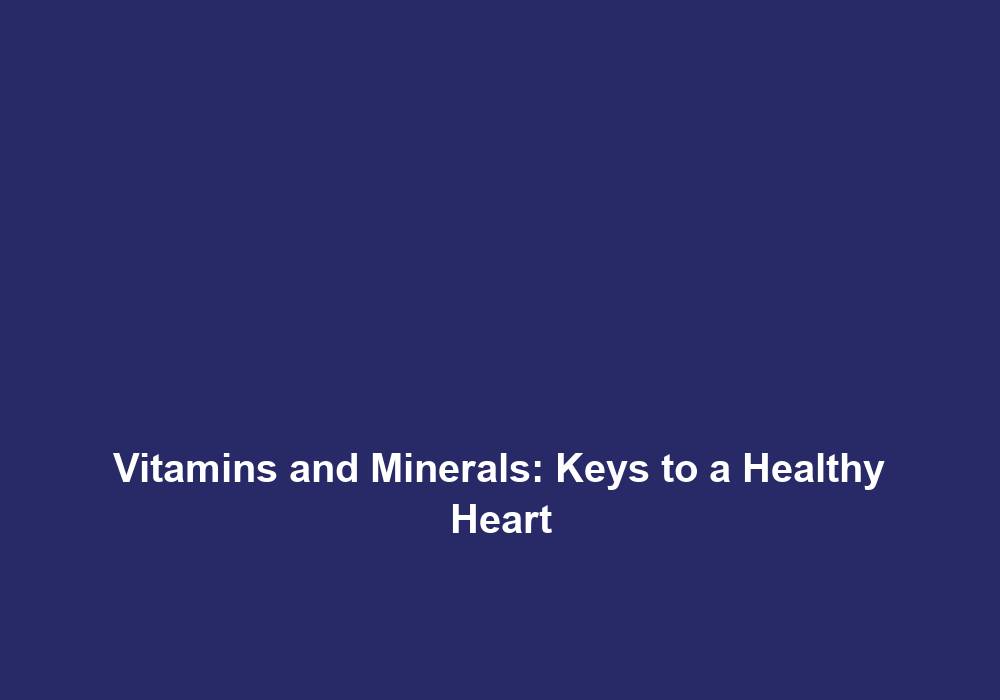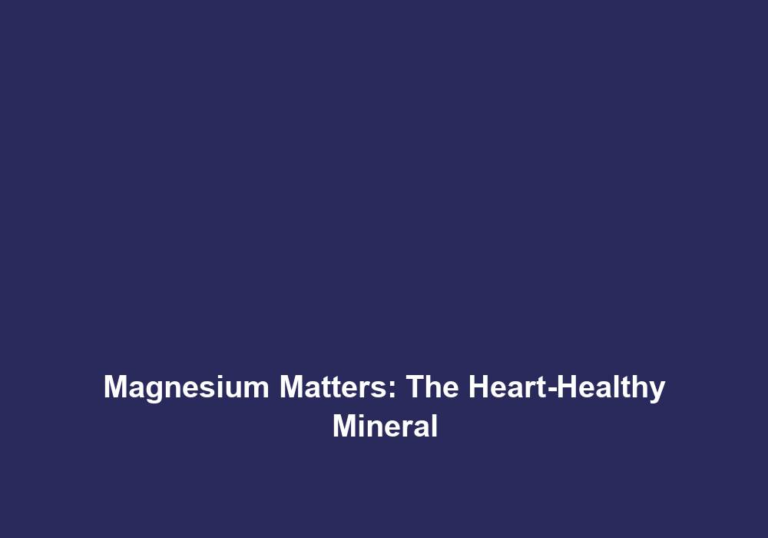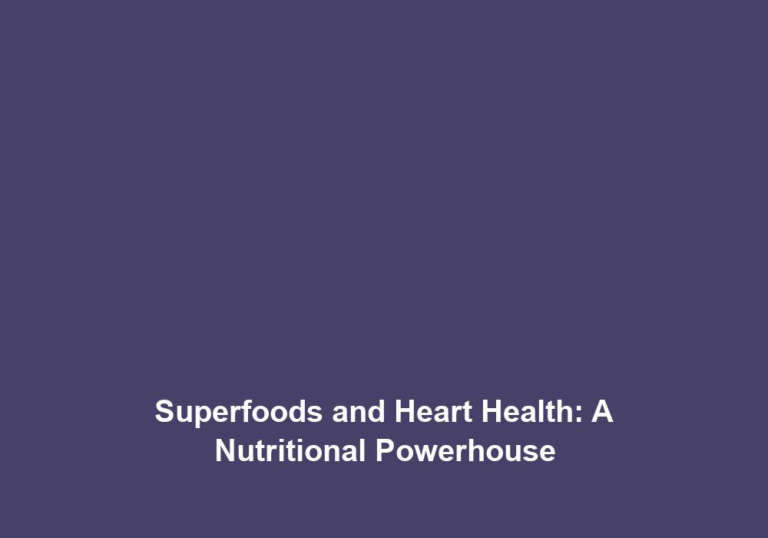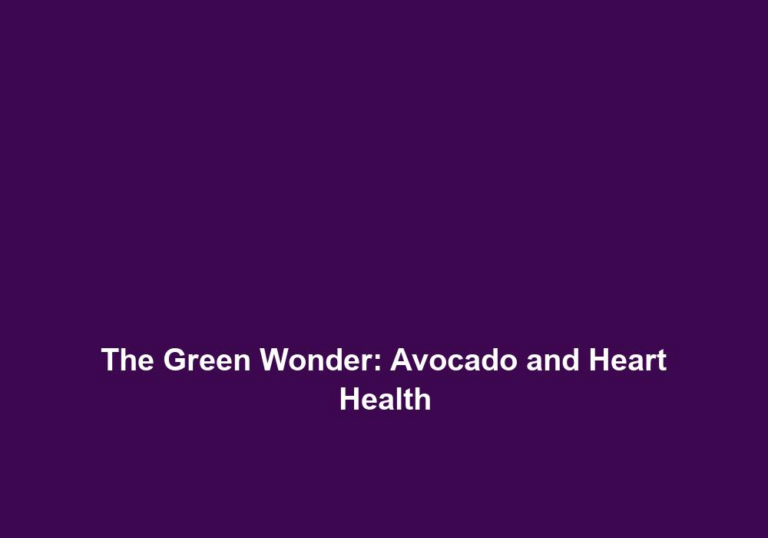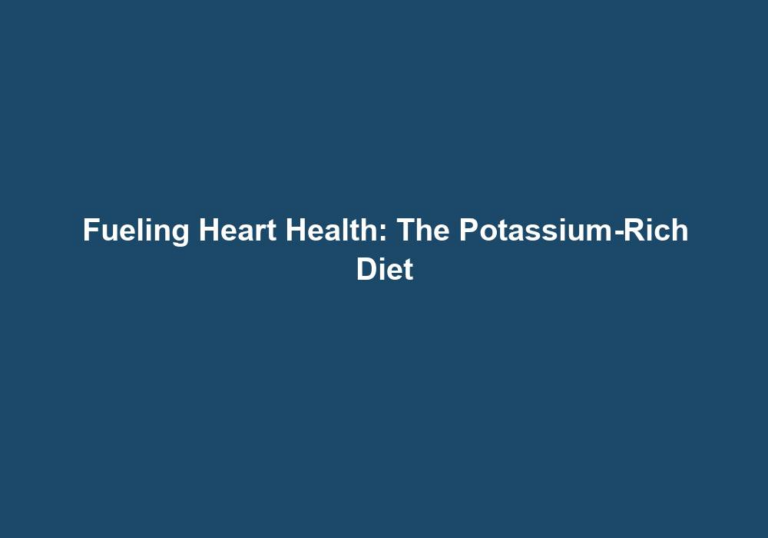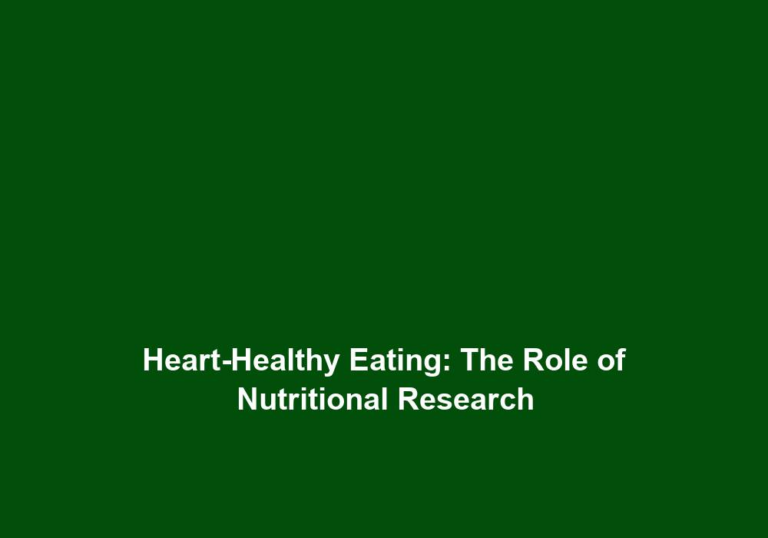Vitamins and Minerals: Keys to a Healthy Heart
The health of our heart is crucial for overall well-being. A healthy heart ensures optimal blood circulation, supplies vital nutrients and oxygen to our body, and prevents various cardiovascular diseases. While a balanced diet and regular exercise are essential for maintaining heart health, the role of vitamins and minerals should not be overlooked. In this article, we will explore the key vitamins and minerals that are beneficial for a healthy heart and discuss their importance in detail.
Vitamin D
Vitamin D is not just important for bone health, but it also plays a significant role in maintaining a healthy heart. Research suggests that vitamin D deficiency may increase the risk of developing heart disease. This essential vitamin helps regulate blood pressure, reduces inflammation, and improves overall cardiovascular health.
To ensure sufficient vitamin D levels, spending time in the sun is beneficial as our bodies can produce vitamin D when exposed to sunlight. Additionally, consuming fatty fish like salmon, tuna, and mackerel, which are rich in vitamin D, can be helpful. If sunlight exposure and dietary intake are insufficient, vitamin D supplements can be considered under the guidance of a healthcare professional.
Vitamin B Complex
The B vitamins, including B1 (thiamine), B2 (riboflavin), B3 (niacin), B6, B9 (folic acid), and B12, are essential for heart health. These vitamins aid in the production of energy, help reduce cholesterol levels, and support a healthy cardiovascular system.
To ensure an adequate intake of B vitamins, it is recommended to consume foods such as whole grains, legumes, green leafy vegetables, lean meats, and eggs. These foods are rich sources of B vitamins and can be easily incorporated into a balanced diet. In cases where dietary intake may be insufficient, supplements can be taken under the guidance of a healthcare professional.
Vitamin C
Vitamin C is a potent antioxidant that helps protect the heart from damage caused by free radicals. It also plays a vital role in collagen synthesis, which is necessary for maintaining the integrity of blood vessels. Moreover, vitamin C aids in the absorption of iron, another mineral important for heart health.
To ensure an adequate intake of vitamin C, it is beneficial to include citrus fruits such as oranges, grapefruits, and lemons in your diet. Other excellent sources of vitamin C include strawberries, bell peppers, and leafy greens. Incorporating these foods into your meals and snacks can provide you with the necessary vitamin C for a healthy heart.
- Citrus fruits such as oranges, grapefruits, and lemons
- Strawberries
- Bell peppers
- Leafy greens
Magnesium
Magnesium is a mineral that is often overlooked but is crucial for heart health. It helps regulate blood pressure, supports muscle function, and maintains a steady heartbeat. Magnesium deficiency has been associated with an increased risk of heart disease.
To ensure an adequate intake of magnesium, it is beneficial to include magnesium-rich foods in your diet. Nuts, seeds, legumes, whole grains, and dark chocolate are excellent sources of magnesium. By incorporating these foods into your meals and snacks, you can support your heart health and maintain optimal magnesium levels.
- Nuts such as almonds, cashews, and peanuts
- Seeds such as pumpkin seeds and sunflower seeds
- Legumes such as lentils and chickpeas
- Whole grains like brown rice and quinoa
- Dark chocolate with a high cocoa content
Potassium
Potassium is an essential mineral that plays a significant role in maintaining heart health. It helps balance the sodium levels in our body, thereby regulating blood pressure. Adequate potassium intake has been linked to a reduced risk of stroke and heart disease.
To ensure an adequate intake of potassium, it is beneficial to include potassium-rich foods in your diet. Bananas, avocados, spinach, sweet potatoes, and white beans are excellent sources of potassium. By incorporating these foods into your meals and snacks, you can support your heart health and maintain optimal potassium levels.
- Bananas
- Avocados
- Spinach
- Sweet potatoes
- White beans
Omega-3 Fatty Acids
Omega-3 fatty acids are a type of polyunsaturated fat that can have a positive impact on heart health. They help reduce inflammation, lower triglyceride levels, and prevent the formation of blood clots.
To ensure an adequate intake of omega-3 fatty acids, it is beneficial to include fatty fish like salmon, mackerel, and sardines in your diet. These fish are excellent sources of omega-3 fatty acids. For individuals who do not consume fish, omega-3 supplements derived from algae or flaxseed may be considered.
Conclusion
Incorporating the right vitamins and minerals into our diet is essential for a healthy heart. Vitamin D, B complex vitamins, vitamin C, magnesium, potassium, and omega-3 fatty acids all play vital roles in maintaining optimal cardiovascular health. While it is always best to obtain nutrients through a balanced diet, supplements can be considered if there are deficiencies or under the guidance of a healthcare professional. Remember, a healthy heart is a key to a healthier life, so make sure to prioritize your heart health through proper nutrition and an active lifestyle.

